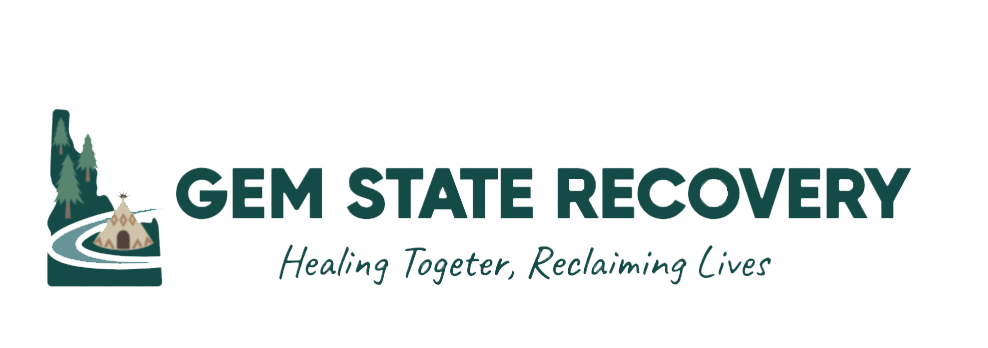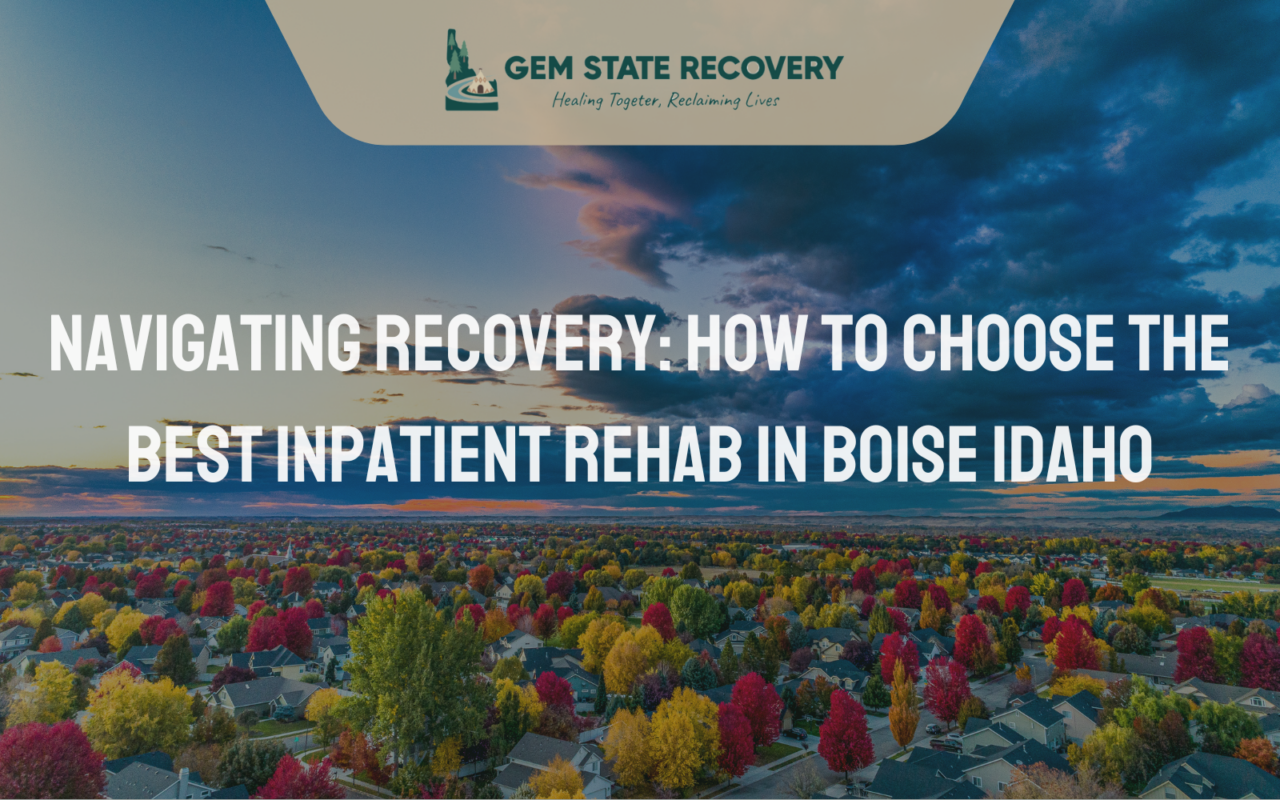Finding the best alcohol rehab in Boise Idaho, is a critical step toward reclaiming your life from the grips of addiction. With numerous facilities available, it’s essential to thoroughly understand what to look for in a rehab center to ensure you receive the appropriate care and support. Key factors to consider include the types of treatment offered, the qualifications of the staff, and the facility’s approach to recovery. Gem State Recovery is here to provide expert insights, guiding you through the process of evaluating and choosing a facility that aligns with your specific needs and recovery goals. Whether you prefer a holistic approach, inpatient care, or outpatient services, we can help you navigate the options to find a program that feels right for you. Remember, taking this step is not just about overcoming addiction; it’s about building a healthier, more fulfilling life.
Understanding Your Needs
Before diving into the myriad of options available for alcohol addiction treatment, it’s crucial to take a step back and assess your specific needs. This self-assessment can significantly impact your recovery journey and help you make informed decisions. Consider the following questions:
What type of alcohol addiction treatment do you require? This could range from inpatient programs, where you stay at a treatment facility full-time, to outpatient services that allow you to live at home while attending therapy sessions. Additionally, detoxification may be necessary if you are physically dependent on alcohol, as it will help manage withdrawal symptoms safely.
Do you have any co-occurring mental health conditions? Many individuals battling alcohol addiction may also face issues such as anxiety, depression, or trauma. Identifying these conditions is vital, as they can complicate recovery and necessitate a dual diagnosis approach to treatment.
What kind of support system do you have outside the rehab facility? A robust support network of family, friends, or support groups can play a pivotal role in your recovery. Engaging with loved ones who understand your journey fosters accountability and encouragement.
Taking the time to answer these questions will provide a clearer picture of what you need from a rehab center and help narrow down your choices. Understanding your unique situation not only assists in selecting the best alcohol rehab in Boise Idaho, but also helps tailor the treatment approach to ensure the best possible outcomes. By being proactive about your needs, you set a solid foundation for a successful recovery journey.
Types of Treatment Programs
There are several types of treatment programs available, each catering to different needs and preferences to effectively assist individuals on their journey to recovery. Here are some common options, along with additional details:
Inpatient Rehab: This type of program provides a structured environment where patients live at the facility and receive 24/7 medical care and support from a dedicated team of professionals. Inpatient rehab is particularly ideal for individuals grappling with severe addiction, as it offers constant supervision and a supportive community that helps to minimize exposure to triggers and temptations. The immersive nature of this program allows individuals to focus entirely on their recovery without the distractions of daily life. For those seeking the best alcohol rehab in Boise Idaho, inpatient rehab offers a comprehensive approach to healing.
Outpatient Rehab: Outpatient rehab offers a more flexible approach, allowing individuals to maintain their daily routines, such as work or school, while attending therapy sessions. This program is well-suited for those with a less severe addiction or those who have already completed inpatient treatment and require ongoing support to prevent relapse. Outpatient programs often include group therapy, individual counseling, and educational sessions to equip individuals with coping strategies for managing their addiction in real-world situations.
Detox Programs: Detoxification programs focus on safely managing withdrawal symptoms under medical supervision, ensuring that individuals can transition through this challenging phase with the appropriate care. Detox is often considered the crucial first step in the recovery process, as it prepares the body by ensuring that it is free of harmful substances like alcohol or drugs before starting therapy. Medical professionals monitor patients closely, providing medications and therapies to ease discomfort and manage cravings.
Holistic Treatment: Holistic approaches to addiction treatment incorporate a variety of alternative therapies, such as yoga, meditation, acupuncture, and nutritional counseling. These programs aim to treat the whole person, addressing not only the physical aspects of addiction but also the mental and emotional components. By focusing on overall well-being, holistic treatments foster a deeper understanding of oneself and promote long-term recovery. Many individuals find that engaging in these practices not only enhances their recovery experience but also helps them develop healthier coping mechanisms and a more balanced lifestyle.
In summary, choosing the best alcohol rehab in Boise Idaho involves considering one’s unique circumstances, goals, and preferences. Each of these options offers distinct benefits and approaches to recovery, allowing individuals to find the path that best suits their needs.
Accreditation and Licensing
Ensuring the facility is accredited by reputable organizations such as the Commission on Accreditation of Rehabilitation Facilities (CARF) or The Joint Commission is crucial. Accreditation ensures the rehab center adheres to high standards of care and ethical practices. Licensed facilities are regularly reviewed and must meet stringent criteria, providing peace of mind that you’re receiving quality care.
Staff Qualifications
The quality of care you receive is heavily influenced by the qualifications of the staff. Look for facilities with licensed and experienced professionals, including:
Medical Doctors: Specialists in addiction medicine who can address the physical aspects of addiction and any co-occurring medical conditions.
Therapists and Counselors: Certified in addiction counseling and mental health, they provide the necessary psychological support and develop personalized treatment plans.
Nurses: Trained in addiction treatment and withdrawal management, they ensure your safety and comfort throughout the detox and recovery process.
Treatment Approaches
Different rehab centers employ a variety of treatment approaches tailored to their patients’ needs. Some facilities prioritize evidence-based therapies backed by research, while others might adopt a more holistic approach, integrating alternative methods alongside traditional treatments. If you’re looking for the best alcohol rehab in Boise Idaho, here are some key approaches commonly used in rehab:
Cognitive Behavioral Therapy (CBT): This therapeutic method is designed to help patients recognize and alter negative thought patterns that contribute to their addiction. By focusing on the connection between thoughts, feelings, and behaviors, CBT empowers individuals to develop healthier coping strategies. It is widely recognized for its effectiveness in treating not just addiction but also co-occurring mental health disorders, such as anxiety and depression, which often accompany substance use issues.
Motivational Interviewing (MI): This client-centered counseling style aims to enhance a person’s motivation to change by encouraging them to explore their own reasons for wanting to quit. MI is particularly effective for individuals who feel uncertain or conflicted about their substance use, especially those ambivalent about quitting alcohol. Through empathetic listening and guided conversation, therapists help clients articulate their goals and strengths, reinforcing their commitment to change.
12-Step Programs: Drawing on the foundational principles of Alcoholics Anonymous (AA), these programs offer a structured pathway to recovery. By providing a supportive community of peers who share similar struggles, participants benefit from accountability and the shared experience of recovery. The 12-step framework encourages individuals to recognize their addiction, make amends, and find a higher power, fostering personal growth and resilience throughout their recovery journey.
Individual and Group Therapy: Both therapeutic formats have unique advantages that complement each other. Individual therapy provides personalized attention, allowing clients a safe space to explore their personal issues, fears, and triggers without judgment. Meanwhile, group therapy fosters community and support, where participants can share experiences, gain insights, and learn new coping mechanisms. The interactions in group settings can be particularly beneficial, offering a sense of belonging that enhances the recovery process. For those seeking help the best alcohol rehab in Boise Idaho, therapy can be a great step toward healing.
By utilizing these various approaches, rehab centers strive to create a comprehensive treatment plan that addresses the physical, emotional, and social aspects of addiction, ultimately paving the way for lasting recovery.
Facility Environment
The environment of the rehab facility can significantly impact recovery, as it plays a crucial role in shaping the overall experience and outcomes for individuals seeking help. Consider several important factors when choosing a facility:
Location: The proximity of the rehab facility to home can be a major consideration. For some individuals, being close to family and friends can provide a sense of comfort and support during a challenging time. Alternatively, others may prefer a more secluded, peaceful setting that allows them to focus solely on their recovery, free from familiar distractions and old triggers. This choice can greatly influence one’s motivation and ability to engage fully in the rehabilitation process.
Amenities: The available amenities at the facility can significantly enhance the recovery experience. Comfortable private rooms allow for personal space and restful sleep, while recreational activities such as yoga, art therapy, or outdoor excursions can promote relaxation and personal expression. Wellness programs that include nutritious meal plans, fitness classes, and mindfulness practices can further support holistic healing, making the stay not only more pleasant but also conducive to long-term recovery.
Atmosphere: The overall atmosphere of the facility is also of utmost importance. A welcoming and supportive environment fosters trust and openness, which are essential components of effective treatment. Facilities that prioritize a positive, non-judgmental ambiance create a space where individuals feel safe to share their struggles and experiences. The presence of compassionate and understanding staff can enhance this environment, making it easier for individuals to engage with the therapeutic process and work towards lasting change.
In summary, considering these factors can greatly influence your recovery journey, making the right environment a key element in achieving successful outcomes.
Cost and Insurance
Treatment costs can vary widely, so it’s important to understand your financial options. Check if the facility accepts your insurance or offers payment plans. Some centers may also provide scholarships or sliding scale fees based on income. Financial concerns should never be a barrier to receiving the help you need.
Aftercare Programs
Recovery doesn’t end after leaving the rehab facility; it’s just the beginning of a new journey. Effective aftercare programs play a crucial role in achieving long-term sobriety and managing the challenges that arise in everyday life. Look for centers that offer a variety of supportive services, including:
Ongoing Counseling: Continued therapy is vital for addressing the emotional and psychological challenges that may surface after rehab. Regular sessions with a licensed therapist can help reinforce coping strategies and provide a safe space to discuss feelings, fears, and triggers, fostering a healthier mindset as one transitions back into daily life.
Support Groups: Access to peer support networks, such as Alcoholics Anonymous (AA) or other community groups, is invaluable. These groups offer ongoing encouragement, share personal experiences, and create a sense of belonging that helps individuals feel less isolated in their recovery journey. Engagement in group meetings can also enhance accountability, as members support each other in staying committed to sobriety.
Relapse Prevention Plans: Comprehensive relapse prevention plans are essential for maintaining sobriety in the long run. These plans should include specific strategies tailored to the individual’s needs, such as identifying potential triggers, establishing emergency contacts for times of crisis, outlining coping mechanisms to manage stress or cravings, and scheduling regular check-ins with a counselor. By having a well-thought-out plan in place, individuals can navigate challenges more effectively and stay on track in their recovery journey.
Investing in aftercare is key to ensuring lasting recovery and achieving a fulfilling life free from substance use, especially when seeking the best alcohol rehab in Boise Idaho.
FAQs
1. What is the difference between inpatient and outpatient rehab? Inpatient rehab requires you to stay at the facility for the duration of your treatment, providing a structured environment with 24/7 support. Outpatient rehab allows you to live at home while attending therapy sessions, offering more flexibility.
2. How long does alcohol rehab typically last? The duration of alcohol rehab can vary depending on the individual and the severity of their addiction. Programs typically range from 30 to 90 days, with some extended options available.
3. Can I visit a rehab facility before making a decision? Yes, most rehab centers encourage prospective patients and their families to visit and tour the facility. This can provide a better sense of the environment and available services.
4. What should I pack for inpatient rehab? Each facility has its own guidelines, but common items include comfortable clothing, personal hygiene products, and any necessary medications. Check with the rehab center for a specific packing list.
5. What happens if I relapse after completing rehab? Relapse is a common part of the recovery process. Many rehab centers offer relapse prevention programs and aftercare support to help you get back on track if you experience a setback.
Choosing the best alcohol rehab in Boise Idaho, doesn’t have to be overwhelming, even though it may seem like a daunting task at first. With the right information and support, you can navigate through the options and find a facility that not only meets your unique needs but also offers a welcoming environment conducive to healing. Look for programs that provide personalized treatment plans, experienced staff, and a range of therapies to support your recovery journey. If you’re unsure where to start or need further assistance, feel free to reach out to Gem State Recovery. Their team is dedicated to providing expert advice and compassionate support to help you make the best decision for your recovery. Remember, taking the first step is crucial, and you don’t have to do it alone. Call us at (208) 314-3107 or visit our website https://gemstaterecovery.com/.






